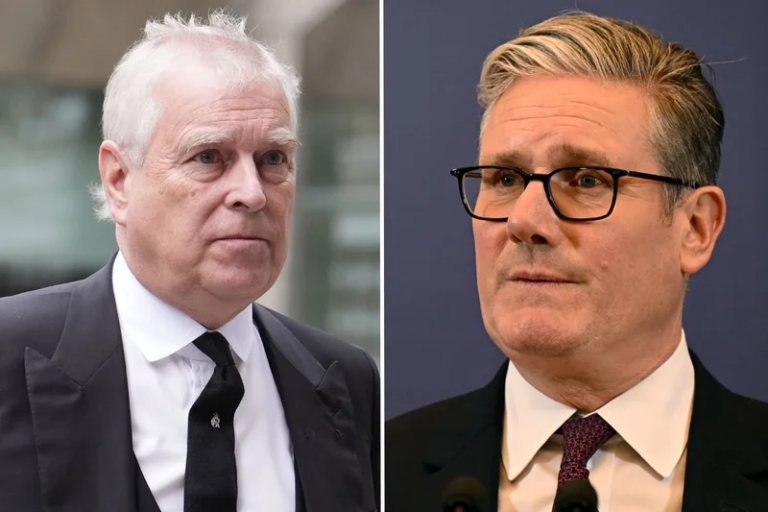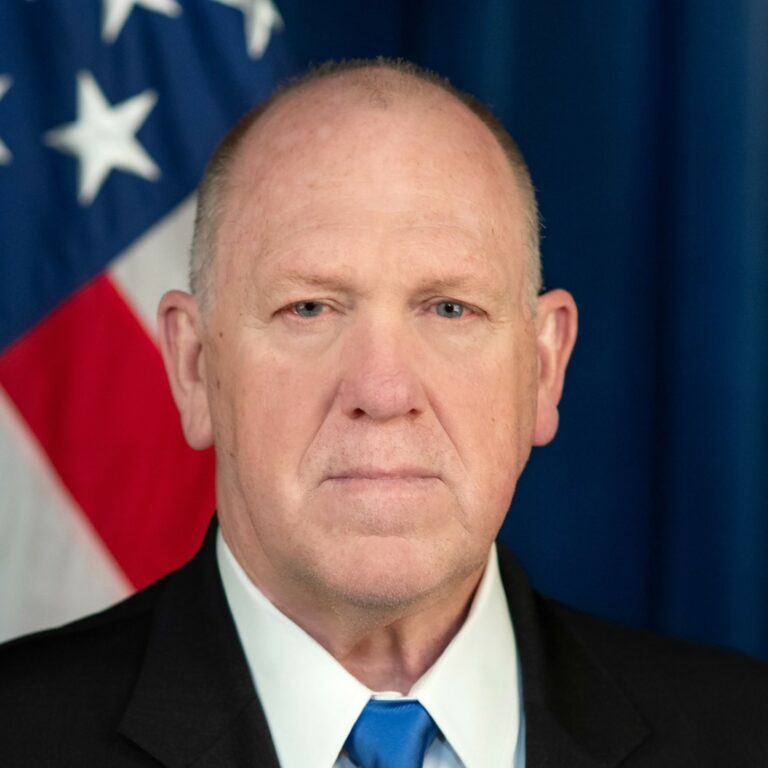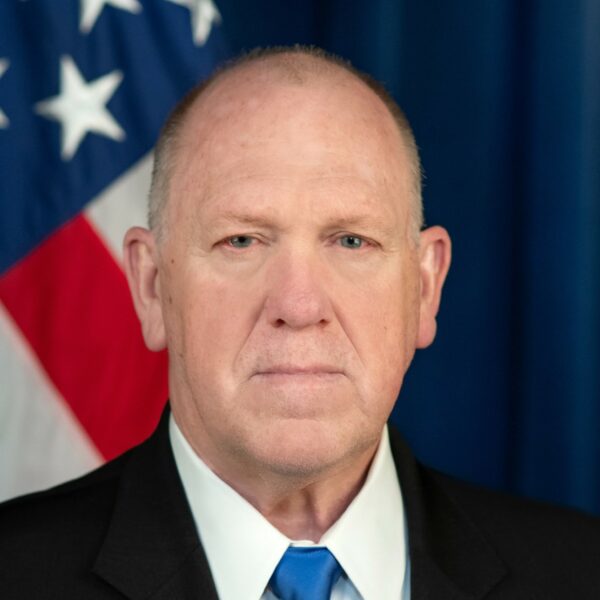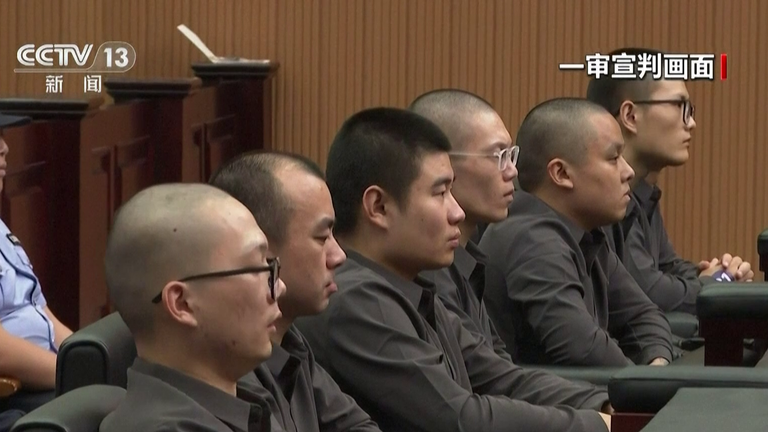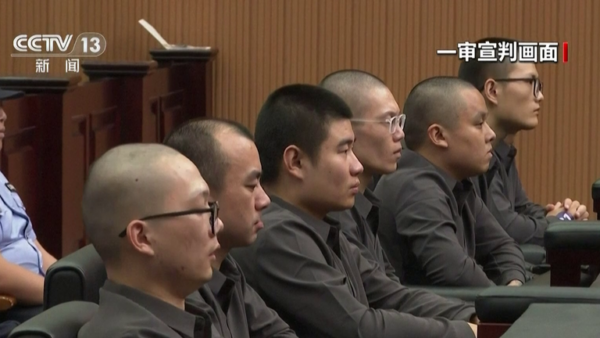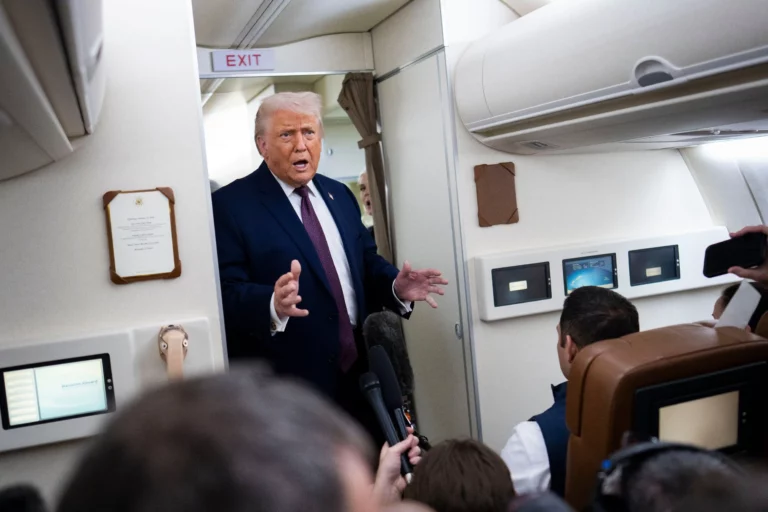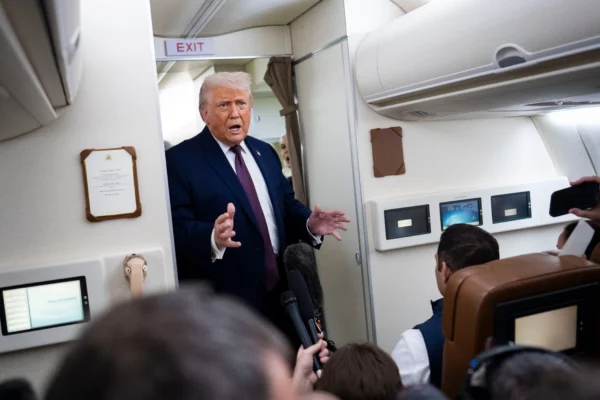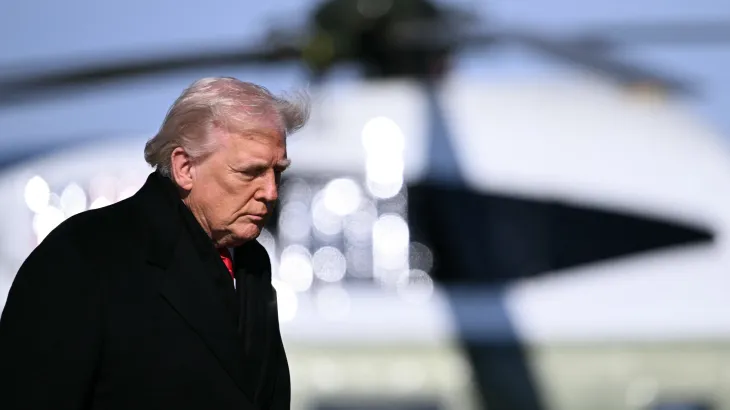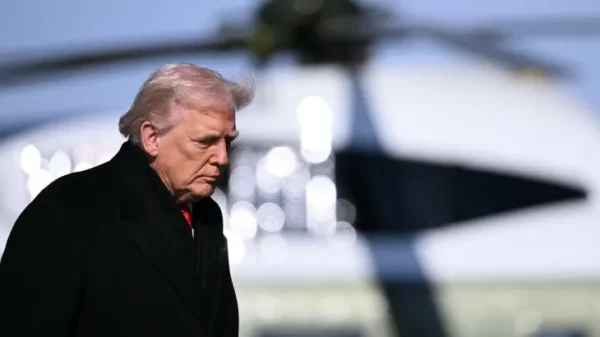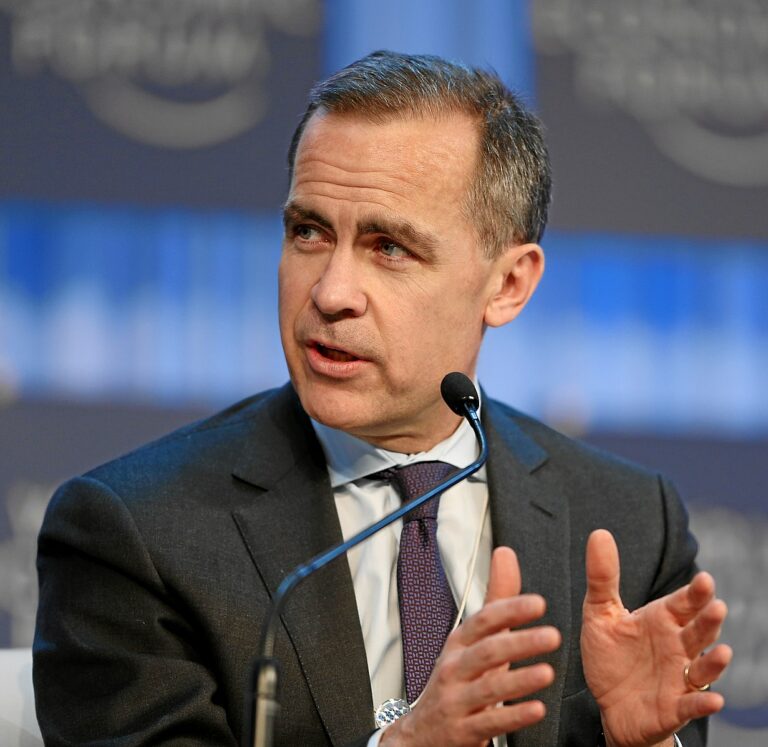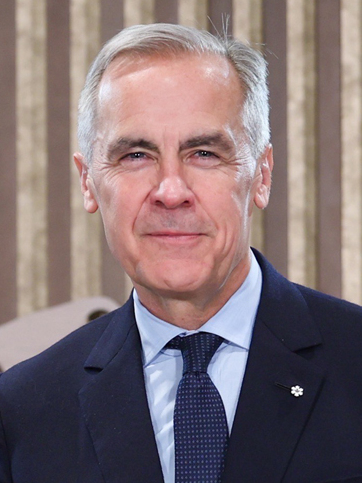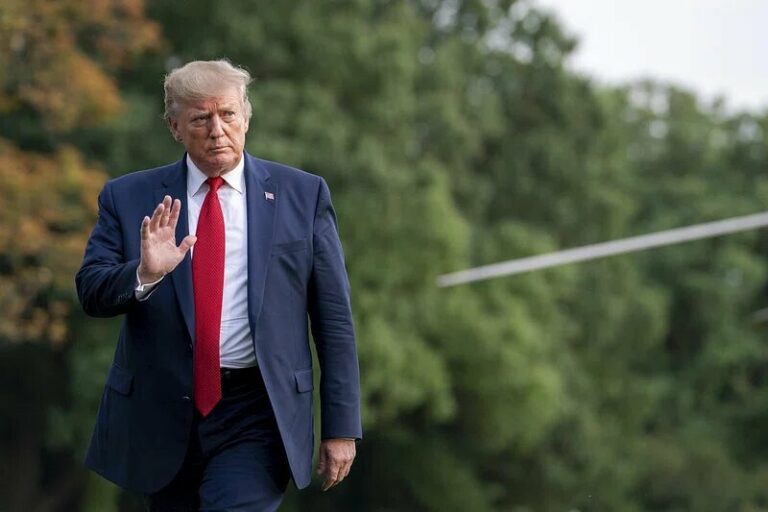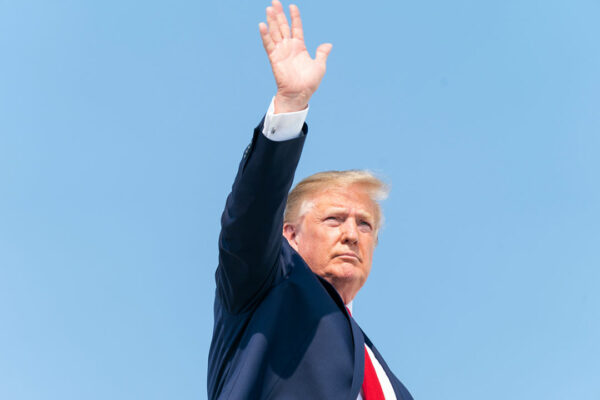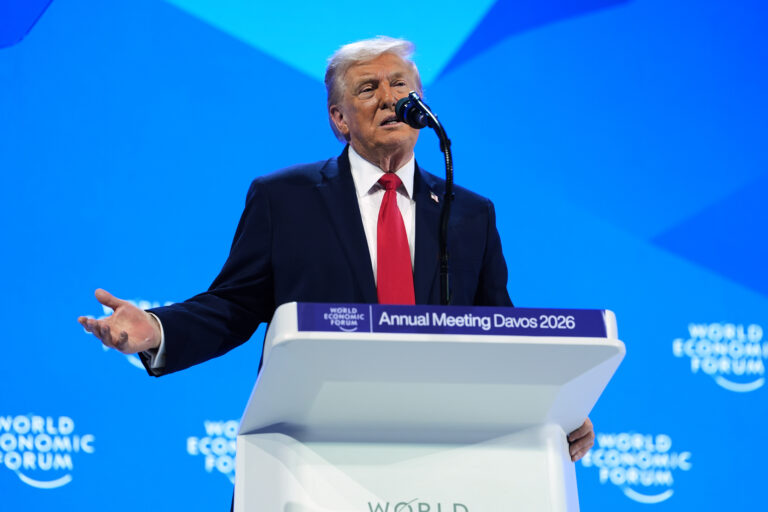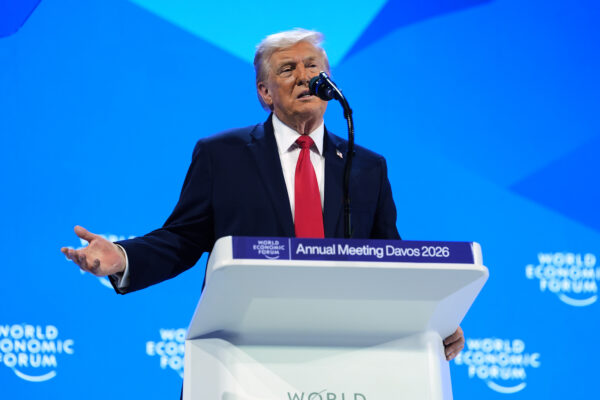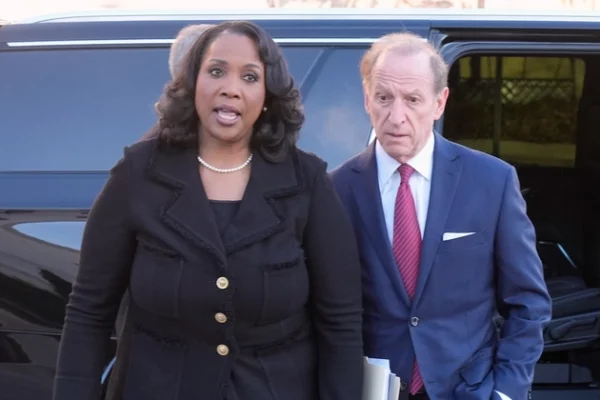TOKYO — In a historic departure from the traditional protection afforded to the British monarchy, Prime Minister Keir Starmer has publicly called on the man formerly known as Prince Andrew to testify before the U.S. Congress.
Speaking to reporters aboard his flight to Japan on Saturday, Starmer stated that Andrew Mountbatten-Windsor must provide evidence to American lawmakers investigating the crimes of the late Jeffrey Epstein. The Prime Minister’s “toughened stance” marks the first time a sitting British leader has explicitly encouraged a member of the Royal Family to submit to a foreign congressional deposition.
“Anybody who has got information should be prepared to share that information in whatever form they are asked to do that,” Starmer said, reinforcing his commitment to a “victim-centered” approach. “You can’t be victim-centered if you’re not prepared to do that.”
The Photo That Changed the Narrative
The Prime Minister’s remarks followed the Friday release of a massive, 3-million-page document dump by the U.S. Department of Justice. The files contain what critics are calling “deeply unsavory” new evidence that appears to contradict Andrew’s long-standing claims of having had limited contact with Epstein after 2008.
Key Revelations from the DOJ Files:
- The ‘Kneeling’ Images: Several redacted photographs appear to show Andrew on all fours, leaning over an unidentified, fully clothed woman lying on a floor. In one image, he appears to be looking directly into the camera.
- The 2010 Emails: Despite Andrew’s 2019 claim that he met Epstein in 2010 only to “break off” their friendship, new emails show the pair discussing business deals and social invitations well after Epstein’s first sex-offense conviction.
- The Russian Connection: In August 2010, Epstein emailed Andrew to suggest a dinner with a “clever, beautiful and trustworthy” 26-year-old Russian woman. Andrew reportedly replied he would be “delighted” to meet her.
Congress Turns Up the Heat
The pressure on Andrew is no longer confined to the court of public opinion. In Washington, the House Oversight Committee has intensified its demand for a “transcribed interview” with the 65-year-old former royal.
Representative Suhas Subramanyam (D-VA), a leading voice on the committee, accused Andrew of “hiding from meaningful investigations.” With the DOJ files now providing a roadmap of their post-conviction correspondence, lawmakers argue that Andrew’s testimony is vital to understanding how Epstein maintained his network of influence.
“The documents show that they had to do something to separate Andrew from the rest of the family,” noted royal expert Craig Prescott. “The ‘nuclear option’ taken by King Charles last year has been entirely justified by these new disclosures.”
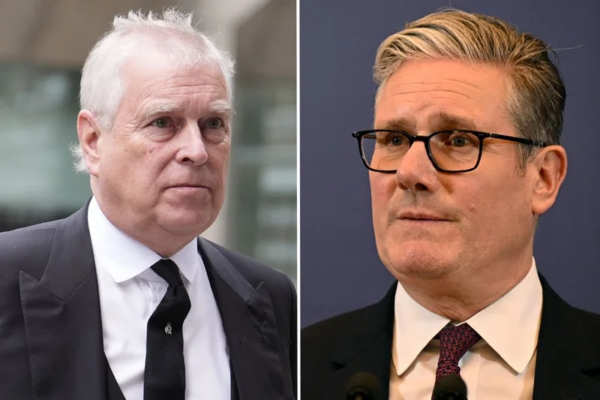
The King’s ‘Nuclear Option’
The escalating scandal has already fundamentally altered the structure of the British monarchy. In late 2025, King Charles III took the unprecedented step of formally stripping his brother of the title of “Prince” and evicting him from his long-time residence at Royal Lodge in Windsor.
The Current Status of Andrew Mountbatten-Windsor:
- Titles: Stripped of “His Royal Highness” (HRH) and the title of “Prince.”
- Residence: Evicted from Royal Lodge; currently residing at a smaller cottage on the Sandringham Estate.
- Legal Shield: No longer benefits from the “sovereign immunity” or diplomatic protections typically afforded to senior working royals.
| Development | Previous Defense | New Evidence / Context |
| Contact Post-2008 | “Only met once in 2010 to end it.” | Emails discuss multiple social/business meets. |
| Physical Evidence | No recollection of meeting accusers. | Redacted photos show him in compromising poses. |
| Public Position | “Victim-centered” empathy. | Refusal to testify under oath in the U.S. |
A Diplomacy of Accountability
Starmer’s intervention puts the British government in lockstep with U.S. federal investigators, creating a united front that leaves Andrew with few remaining allies. While Buckingham Palace has declined to comment on the latest DOJ files, the Prime Minister’s words signal that the “special relationship” between the U.S. and the UK will no longer be used as a shield for private royal scandals.
As the sun sets over Tokyo, the man formerly known as the Duke of York faces a choice: continue his voluntary exile behind the gates of Sandringham, or fulfill the “victim-centered” duty his Prime Minister has now publicly demanded.
